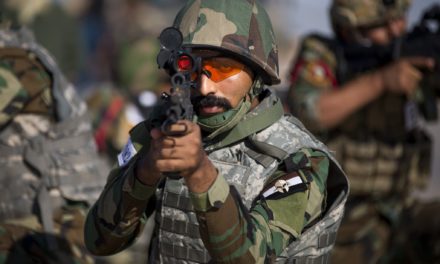This is the second article in a four-part series on the upcoming Iraqi election by Ambassador Lukman Faily
What are the most important characteristics for choosing the next Iraqi prime minister? This is a fundamental question, which needs long and timely Iraqi reflection. The nature of the challenges are many and deep, and each side of Iraq needs different qualities and requirements, so what is the best solution to meet these needs and aspirations for the forthcoming candidate for the premiership?
I think it is impossible for all these important qualities and attributes to be found within one single person however remarkable he is. Therefore, the two most important qualities necessary to meet these requirements at this stage are: first, in the ability to work effectively within a team and, secondly, the ability to effectively manage complexity. Without a strong team (personal and cabinet), no one can meet the needs and aspirations of different Iraqis, and without the ability to effectively manage complexity; the different and diverse state agencies will not operate in harmony and complementarity.
Too much focus on who will be the next prime minister will keep us away from focusing on finding solutions to Iraq’s priorities and the many urgent and intractable situations that require great collective effort and focus. Here, I hope that our young Iraqi democracy will not become obsessed with who will rule and be like some of the democracies that begin the campaign for the second term (and the obsession to stay in power) from the first day of their first term.
In order to build Iraq on the right foundations, it is necessary for the parties and all the elements of the electoral process to evoke within the electorate a sense that they, the candidates, are responsible for the development of Iraq, and that there is a positive correlation between a proper electoral discourse and the revival of the state and its various apparatuses.
Perhaps an important question following elections relates to who (individuals and parties) are willing to be within the opposition blocs? And if they are not ready for it, the second question relates to the readiness of the candidate for premiership to form a new effective coalition government? Therefore, if every party wants to be within the formation of the next government, we will return to the current approach of the quota system, as well as the adverse consequences of losing the credibility of initiating an effective political program.
According to the rules of political science, the convergence of intellectual or ideological narratives is the core foundation upon which coalition governments form. Subsequently other factors come into play such as historical positive interactions between the coalition parties, and finally the acceptability of such alliances to their public. This is at the theoretical level, but if we see the actual political landscape in our political turf, Iraqi political ideology is a bit weak, and the history of unconstructive dealings between the parties is very forgettable, especially since many alliances are transactional and not strategic, and finally, people’s acceptance of loose alliances is not difficult because we as masses are attached to symbols and leaders and hear from them more than any party and therefore we have not yet translated much of the spirit of democracy into our daily politics.
The reasons for the fragility of Iraqi political blocks and coalitions is manifold: firstly, it is due to the speed of their establishment and inevitable disintegration; secondly, to the paucity of strong intellectual participants or manifestos; and finally, to the lack of understanding between the leaders of the different parties. In other words, a change in loyalties does not give continuity to these coalitions, nor does it guarantee continuity in joint government national programs after the elections.
It is not possible for such a political culture to build a country, or for it to reduce the number of parties and their fractions. There is no rational methodology to the process, thus leading to no or weak improvements to the political system, the continuation of tensions, and the fragility of our political situation.
For parties and coalition blocks to play an essential role in reforming our political process, they should reflect upon whether they have also been an essential part of the problem. It is a difficult objective to achieve, more so since they have relied on multiple factors for their current strengths – either on outside powers or inside fragmentation.
The elite is supposed to be the link between the leaders of the government and the people. The important question is how strong is this link? The 2014 election reflected the weakness of this group, as most of their predictions were not accurate. In order to build a solid democratic base, which educate the people and the government, will the next four years strengthen the bond between the elite and the people on one side and between the elite and the government on the other? The answer will be seen in a few weeks or months.

Lukman Faily
Lukman Faily served as Iraqi ambassador to Japan and the United States.










